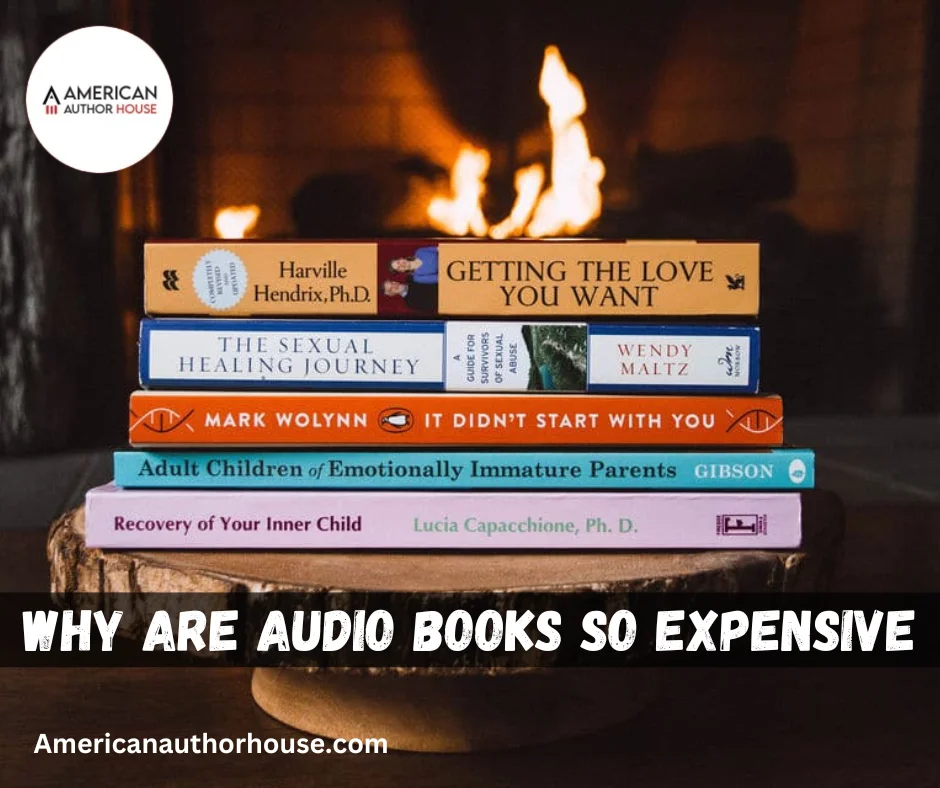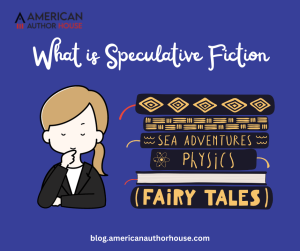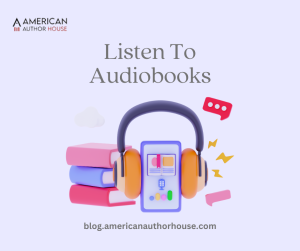
Writing
Listening to books on tape or CD is a great time saver. You may listen to a book on your commute, in the gym, or even at the office. You no longer have an excuse for not reading further.
However, why do audiobooks cost so much more? To put it plainly, their production costs are high. They’re professionally made and narrated by well-known actors. Also, they’re lengthy; it would take you more than nine days to listen to the complete A Song of Ice and Fire series.
Get Into The Details
Many audiobook providers, like Audible, Audiobooks.com, Scribd, Librivox, Overdrive, and Speechify, have very different prices. Some sites cost more than others, and it’s not usually because they offer free audiobooks.
People who have been using a America Author House for a long time don’t always understand why an audiobook costs more than a print text. Sometimes people don’t understand why podcasts are so expensive when membership costs are usually so low.
One problem is that many people don’t know how much it costs to make an hour of a podcast.
Reasons Why Audio Books Are Expensive
You need to know a few things before you start listening to audio books on your iPhone or Android smartphone. Knowing the prices of different streaming services and providers can help you make a more informed decision. Among those expenses are:
1- Royalties
The royalty structure of audiobook creation and publication is also fascinating. The fact that writers don’t always get to retain the revenues means that audiobooks may be rather pricey.
Some voice performers may like to be paid both an upfront recording fee and a percentage of sales, as was previously discussed. One of the few methods to convince famous actors to spend time in a recording studio narrating Audible books is to pay them.
Companies involved in creating and distributing audiobooks may also seek royalties from their customers. That won’t always help audiobook authors save money on production, promotion, or distribution.
Profits from the sale of audio books might be shared among the author, the audiobook provider (such as Spotify, Amazon Audible, and iTunes), and the voice performers. If you want to license the audiobook rights to best-sellers by other writers, this makes audiobook creation even less viable for you.
2- Demand And Supply
Even though the market for ebooks is growing, they are still less popular than e-books and print texts. Prices are often high because of how much it takes to make something and how few people want it.
But it’s also important to remember that some services that have a monopoly in the industry are also to blame for the high prices of audiobooks. The average price of a CD has been set by sellers like Amazon for a very long time.
Prices drop a lot when there is a lot of competition and similar services that shake up the market. Like on-demand services like Netflix, the audiobook business does have some rivals like Amazon and cheap monthly membership services.
3- Narrations
In audiobooks, the story is just as important as how it is read and acted out. A good radio storyteller must bring the plot to life and keep the audience interested in what will happen next.
Because the narrator is so important to the success of an audiobook, reputable companies often hire narrators with a lot of experience. Some companies may even get famous people to read their CDs, which can drive up the price even more. There are also times when more than one person reads the different roles in a podcast. These can add up to a lot of money.
4- Editors And Recording Engineers
The audiobook storyteller is in charge of giving the story a voice, but the audiobook editor and recording engineers are in charge of making sure that voice is clear and loud enough to meet industry standards. It is especially important for big companies like Audible, which has to follow strict technical rules before their recordings can be sold in the Amazon Audible store. If it doesn’t follow the rules for Audible, it won’t be allowed in the shop.
5- Author’s Share
Many writers want a big publisher to carry their audiobook, but getting your work released by one can come with very high royalties. For example, Audible’s production arm can ask for anywhere from 60% to 75% of the profit, based on whether the book is only sold on Amazon’s Audible store or if it is also sold in other stores.
The rest of the profit goes to the author of the audio books. Whether or not the author pays for the production costs upfront or has a profit-sharing deal with the producer affects how much of the author’s profit is. On the other hand, self-published ebooks usually don’t have this problem. This means that they are usually cheaper, but they also have a smaller market.
Pros And Cons Of Each Of Types Of Book
To choose between standard books, podcasts, and eBooks, it’s important to discuss each medium’s pros and cons.
1- Audiobooks
Many people believe that audio books are the future of the printing business.
Pros
1. No eyestrain
2. There’s no need for lights.
3. Easy to carry around.
4. Compatible with many iPhones, iPads, Androids, and other smart devices
5. Better for multitasking
6. Possible to pair full recordings with e-books, like Kindle books and Audible.
7. You can make bookmarks and direct the playing.
8. People with disabilities can get to it
Cons
1. Pricey compared to other formats
2. Can take up more space online
3. Not going to work without gadgets and a charger.
4. Not very good at highlighting
5. There are fewer self-published books out there.
2- Traditional Books:
Plain old paper books have a lot going for them, but they also have a few problems in the world we live in now.
Pros
1. Not depending on power and technology
2. Can’t be replaced book feel
3. Less likely to be censored
4. Easy to give or borrow
5. A good book stops people from getting distracted by technology.
6. Real pride in what you own
Cons
1. Depending on how well the lights are working
2. Not as easy to carry or store.
3. It can cost a lot
4. Lose worth when you mark them up and use them.
3- E-books:
Once upon a time, reading e-books was the next big thing. Then podcasts came along. Even so, that doesn’t mean eBooks don’t have pros or situations that make them more appealing.
Pros
1. It’s easy to see what’s good.
2. No space needs for a real or digital library
3. Excellent travel
4. Most affordable book types
5. Authors should be able to post more easily.
6. A great medium for short works like stories and comics
Cons
1. Highly reliant on portable and fixed computers
2. Not the same as having a real book or reading one.
3. Social media alerts and ads on phones and e-readers can be a distraction.
4. Not as engaging for everyone as actual copies or podcasts
Final Words:
Compared to the cost of printing and releasing a hardback book, the price of audio books may seem high. However, when you consider how much it costs to make an audiobook, it may be more accurate to compare it to a movie or TV show. That’s how they make money, and since an average feature film has a budget of $1 million, the price of an audiobook doesn’t seem so crazy. Also, unlike actual books, a podcast offers a unique, almost dramatic experience that makes it worth the price.



